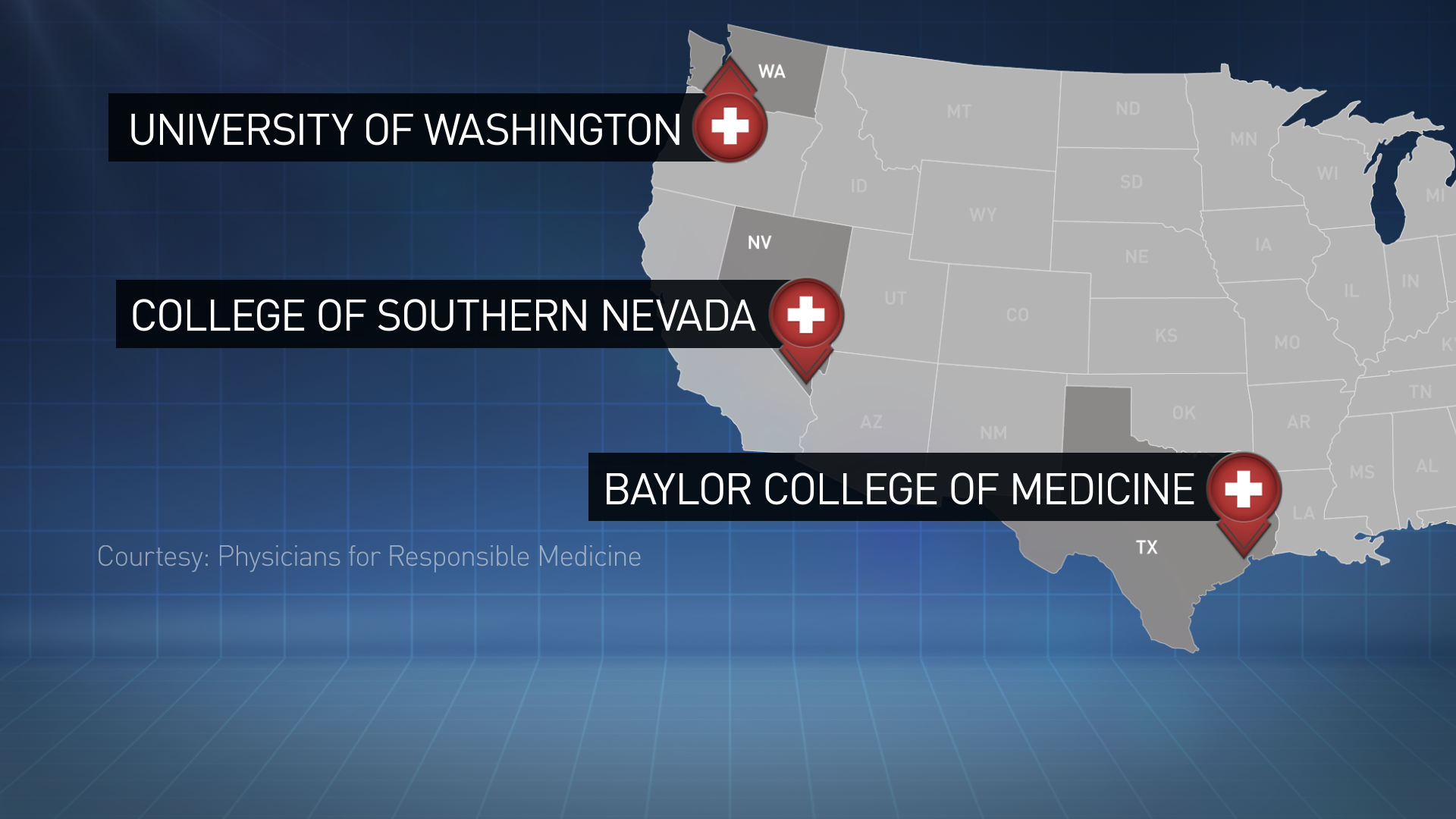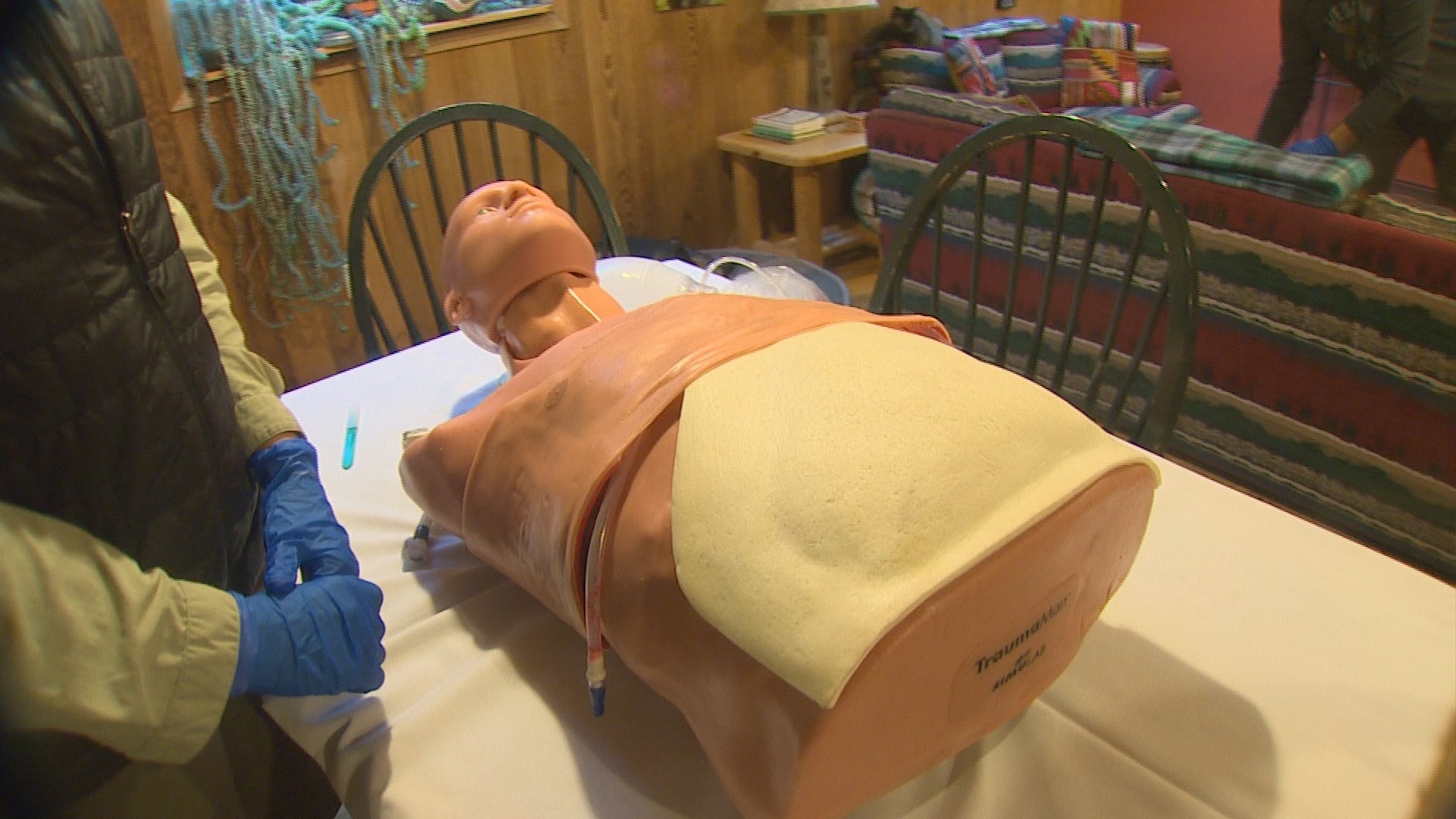Stop killing pigs. That’s the message a group is hoping to send to the University of Washington, Harborview Paramedic training program.
That’s because, according to a Physicians Committee for Responsible Medicine survey, the University of Washington/Harborview Medical Center training program is one of only three known programs still to use live animals to train paramedics.
According to the Physicians Committee for Responsible Medicine, the only other programs it is aware of that use live animals to train paramedics is Baylor University in Houston and the College of Southern Nevada in Las Vegas.
According to the University of Washington, the program uses pigs train paramedics to on a technique called “surgical airway.”

Cindy Coker, a Snohomish County paramedic, said based on her knowledge of the program, the University has killed about three dozen pigs a year to train this procedure.
“I think most people don't know that it happens. It happens behind closed doors,” said Coker.
Coker believes that the practice is not only inhumane, but it's also not the best form of training for two reasons. Coker says using a pig is not anatomically correct, and using a simulation allows trainees to practice multiple times, not once.
The Physicians Committee for Responsible Medicine and Coker suggest using a simulated alternative.
Coker uses what’s called a TraumaMan, created by the Seattle-based company Simulab. Coker, as well as the Physicians Committee for Responsible Medicine, believe this is not only another option, it is superior to using an “anatomically different” option in a live pig.
So what does the University of Washington/Harborview program not use a simulated method?
While the University of Washington says it uses simulation for training purposes for other procedures, for this specific procedure the University said in an email that “simulation does not provide the same experience and the added training we provide can literally be the difference between life and death for a trauma victim.”
Bottom line, the University feels that using live animals is the best method of training.
"We believe that is the most effective way to train those who would be doing this out in the field," said Tina Mankowski, the director of UW Medicine News. “The University of Washington has one of the best paramedic training programs in the country and our survival rates indicate essentially training paramedics to provide critical care out in the field.”
Michael Copass, the former director of Emergency Services at Harborview Medical Center explained the University’s position in greater detail in a written presentation to the Board of Regents last February saying “understanding of the properties of live tissue ... managing the real stress of interacting respectfully with a living creature ... is critical to the success of the procedure."
When asked why, if this is the best training method, is the University one of only three programs in the nation to continue to use this training method, Mankowski said it’s a matter of resources.
“Relatively few places teaching these techniques have the ability to support using the animal model. Therefore the numbers of institutions not using an animal model is skewed in that direction,” said Mankowski.

But Dr. John Pippin of the Physicians Committee for Responsible Medicine, who spoke to the University Board of Regents this past February about this issue, says he’s “perplexed” by the University’s reasoning.
Dr. Pippin calls it "macho posturing...their [University] heels are dug in, and they don't want to look at the facts."
This fight is not new. Dr. Pippin said his organization has been working to stop the use of live animals at the UW/Harborview program since 2012.
Coker started a petition to stop the practice.


